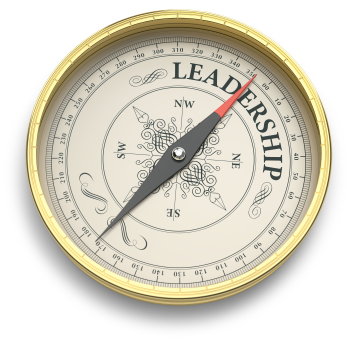 In recent years much has been written on the subject of leadership. Go to the business section of any major bookstore and you’ll find shelves lined with books that tackle the topic. It’s the focus of thousands of seminars, workshops, and articles every year. Most corporations invest heavily in ongoing leadership training programs for their employees. It seems like everybody is talking about leadership.
In recent years much has been written on the subject of leadership. Go to the business section of any major bookstore and you’ll find shelves lined with books that tackle the topic. It’s the focus of thousands of seminars, workshops, and articles every year. Most corporations invest heavily in ongoing leadership training programs for their employees. It seems like everybody is talking about leadership.
What’s the big deal about leadership? Leadership matters. Leaders point the way and set direction for others. The quality of our lives is affected by the character and skills of our leaders. Better leadership leads to better lives.
Everybody benefits from leadership training. We all have roles and responsibilities that affect and influence others. When you’re a better leader, the people around you are blessed.
Growth as a leader begins with an often overlooked opportunity — ourselves! To effectively lead others, we must first learn how to lead ourselves. In many ways, we see our toughest leadership challenge every time we look in a mirror!
To be a good “self -leader” we have to get a handle on several key areas of life:
- Our thoughts.
How we think and what we think determines what we do. Leading yourself requires taking control of your thoughts and directing them in good and godly paths. You can control what you think. You can manage your mind. Take a look at what the Bible says about this:
… Fix your thoughts on what is true, and honorable, and right, and pure, and lovely, and admirable. Think about things that are excellent and worthy of praise. — Philippians 4:9 (NLT)
- Our attitudes.
Attitudes are the perspectives that influence our actions and interactions with others. They’re the way we look at, interpret and approach life — either positively or negatively; with faith or fear; with hope or despair; as a potential victor or as defeated before we begin; etc. Attitudes either empower or poison us.
To effectively lead yourself, you must investigate and adjust your attitudes. You must detoxify the way you look at life and people. You must cultivate new perspectives that are healthy and holy.
- Our emotions.
Everybody has emotions. We feel things. It’s part of being human. When emotions are understood and properly managed, they can be harnessed for good. When they’re not, they hijack us, hold us hostage and wreak havoc in our lives.
Unmanaged emotions spill onto others though our moods and words. They press us into poor, imprudent decisions. Most of our regrets in life are linked to emotions run amok.
Being a good self-leader involves learning how to manage your emotions. Don’t let feelings control your life. Emotions are great servants, but terrible masters!
- Our habits.
Self leadership also requires the development of the right habits. A habit is a pattern of thinking or doing that’s repeated by conscious choice, and eventually is practiced unconsciously. It becomes a part of the person’s character.
Good self-leaders think about their spiritual, mental, emotional, relational and physical habits. They consciously choose to do things that are good for them and for the people around them. They exercise discipline in their habits until good habits become a part of who they are.
- Our time.
Time is a resource we all share equally. Everybody has 60 minutes each hour, 24 hours each day, and 168 hours each week. As the minutes, days and weeks pass, time is depleted. It’s gone for good.
Time is a valuable asset. What we do with our time is what we do with our life. If it’s invested wisely, it pays huge dividends. When we waste time, we waste life.
A good self-leader values time and makes the most of each moment. They bring order and organization to the use of their time.
Here’s a great reminder about this from the Bible:
Be careful, then how you live — not as unwise but as wise, making the most of every opportunity, because the days are evil. — Ephesians 5:15, 16 (NIV)
Leadership is important. God is calling you to be a better leader. What’s your next leadership assignment? Look in the mirror!
Pastor Dale
Tweet